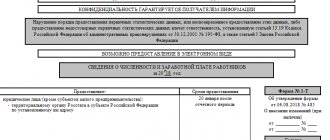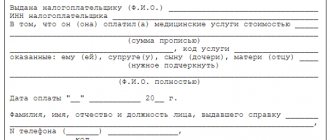What is tax accounting?
The system for collecting information about what income and expenses were received in a business in a certain period is called tax accounting (TA). In addition to collecting, this system also systematizes data to determine the tax base and clarify what income tax the company will have to pay. The calculation is carried out depending on what system the company or individual entrepreneur uses. For example, if a general taxation system is used, income tax is calculated, and if the simplified tax system is used, then the base is calculated according to a simplified scheme.
If the data is collected, it is used by organizations or individual entrepreneurs to correctly draw up reports, and then transfer them to the Federal Tax Service. At the same time, tax authorities must check whether the tax has been calculated correctly and whether the transmitted data is reliable. When this is done, you can begin collecting tax according to NU.
Sometimes NU is confused with the accounting type of reporting. The essence of tax accounting is to pay taxes correctly, since they are determined precisely on its basis. Whereas accounting simply describes the financial side of the company's work and the state of affairs at a certain moment. Due to the confusion that arises if these two concepts are replaced, serious problems can arise, including discrepancies in profits, which are subject to tax. Therefore, many try to minimize the difference between the tax and accounting reports.
Accounting
Organizations using the simplified tax system keep accounting in full - they are guided by PBU, FSBU and other regulations, make accounting entries for each fact of the enterprise’s activity, use special accounting registers, etc. Until March 31, they submit annual accounting reports to the tax office - balance sheet, financial results report, appendices and explanatory note.
Entrepreneurs do not have an obligation to keep accounting, provided that they have established records of income, expenses and other objects necessary for calculating taxes. But individual entrepreneurs may not give up accounting if they need complete information about the state of the business.
If the LLC is a small enterprise and is listed in the SME register, accounting can be simplified, and accounting reports can be submitted using abbreviated forms from Appendix No. 5 to Order of the Ministry of Finance No. 66n dated 07/02/2010. An individual entrepreneur can exercise the same right if he decides to do accounting. The only thing is that he won’t have to submit his accounting reports to the tax office in any case.
In particular, to simplify accounting:
- Combine some accounting accounts. For example, account 20 “Main production” with other cost accounts 23, 25, 26, 44, etc.
- They take into account income and expenses on a cash basis, that is, they recognize revenue immediately when it is received, and expenses - when repaying the debt for goods received, work performed or services performed.
- Some PBUs and FSBUs or their individual sections do not apply. For example, you can abandon PBU 8/2010 and not create reserves to pay for upcoming vacations.
- They do not use accounting entries (this method is suitable for micro-enterprises).
The choice of simplified accounting and methods of maintaining it are prescribed in the accounting policy.






